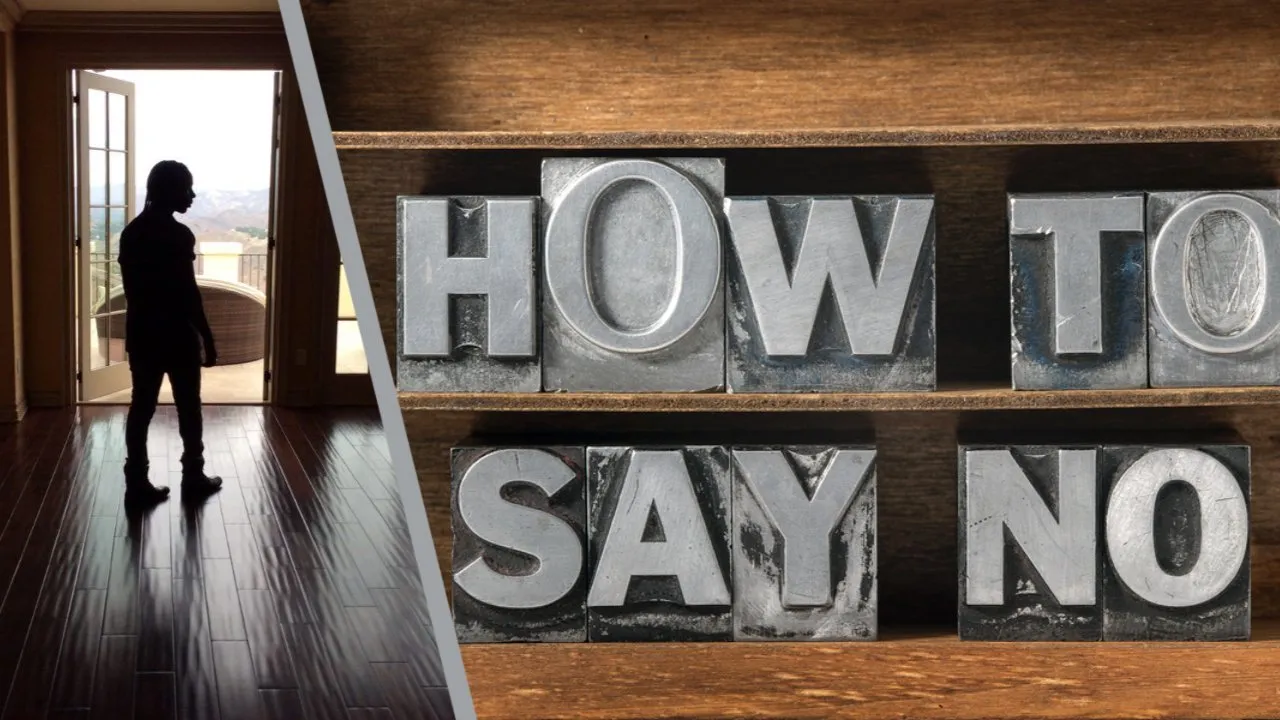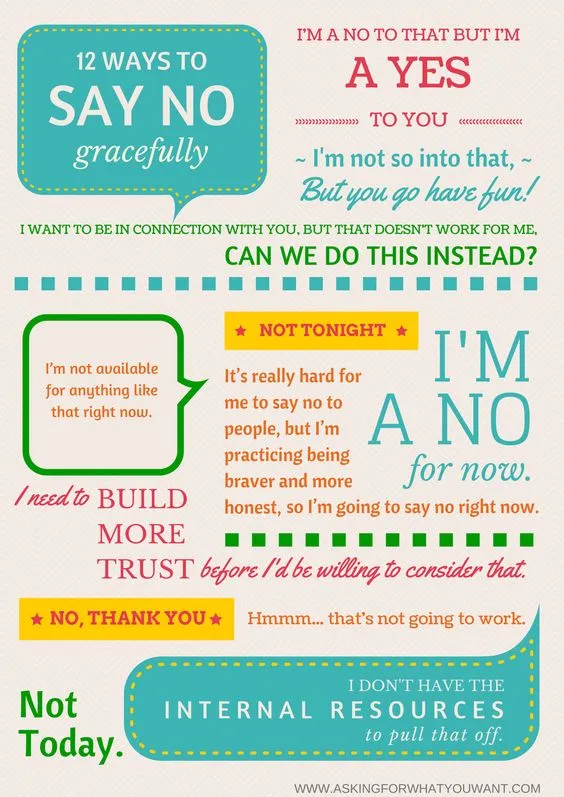
Humans are very social beings. We want to be part of a group, be liked and have friends, and that’s a totally natural behavior.
But sometimes, this goes too far – we probably all know someone who is being used because of their inability to say NO.
And this can become a real problem, because it hurts the person from within and they can actually end up being left alone because when times get tough, those people that used them usually disappear.
Reasons why you can’t say No:
- You want to be liked and accepted by others.
- You want others to think positively of you.
- You don't want to hurt or let down anyone.
- You want to avoid conflicts.
- You want to be (or stay) part of a group
- You are afraid to address your opinion out loud.
- You want to show people that you're a good person and are willing to help.
Essentially, it’s a trade: I help you with this, but in return I expect to be liked or respected.
But this is an issue that's not only about being used by others - it's also about not being able to voice your opinion.
When someone is cutting the line at the grocery store, bumping into you on the street, or annoying you on the subway - these are all situations where you should learn to voice your own opinion and make it clear that you are not comfortable or happy with the situation.
Start with small things and then gradually build it up!

Here are some Tips to remember when learning to say No:
1) You have a CHOICE!
Remember that you are not obligated to say yes – you always have the choice, even though sometimes it might not feel like it. You can decide what is best for your own good.
2) You don’t need to justify your decision.
If you say no to someone, we often feel like we have to tell them an excuse or an explanation. But you are not obligated to justify your decision at all. Of course most of us wouldn’t say “I don’t want to help you because I don’t like you”, but you don’t have to be as drastic!
"No" is a complete Sentence. It does not require justification or explanation. - Unknown
3) Don’t answer right away!
Sometimes when someone asks us for a favor, we have the reflex to say “sure!”. But take a few seconds to actually think about if you want to do it, what the consequences would be, if you have enough time etc.
4) Set your priorities!
You live your OWN life. Which means that YOU come first, and your tasks/goals/wants come first! You are not obligated to help out someone else before finishing your own to do lists (unless of course it’s a serious emergency.) So before making a decision, always ask if it's worth it!
5) It’s OKAY to say No!
Just because you’re not used to saying it, doesn’t mean other people aren’t used to hearing it. Sometimes you hear a No in life and you should accept it – even if it comes from you. Real friends should be respectful enough to understand that!

Be prepared that people will try to persuade you anyway, even if you learned to say No.
They will say things like:
- If you were a good friend/colleague, you would...
- You can do this much better than I can!
- But we always do it like this / you're the only one that doesn't do it
- But we're friends right?
Those are really just forms of blackmailing. They try to make you feel bad about your decision, tell you that you are the only solution, or try to make you somehow feel obligated to agree.
Don't be irritated by that. You have just learned to say No, now don't buckle but stick with it!
"Givers need to set limits because Takers rarely do. - Rachel Wolchin
So how can you stop being used long-term?
You have to set new boundaries for yourself.

To do that, first of all you need to be aware of your current boundaries.
Think about different scenarios when someone asks you for a favor, and write down if you would say yes or no depending on the circumstances you're in (and also write down if you actually mean to say yes or not!)
Also think about situations where you first agreed, and then later on you were mad at yourself.
Now think about when this happens -
Is it with certain people? Or when you are in a certain condition? How do you react when your boundaries get crossed, and how would you prefer them to be?
There is no general guide to your personal boundaries because everyone is different, so I can't give any step-by-step instructions.
But what's important is that you simply listen to your own feelings, your own wants and needs, and think about how you could alter your boundaries to feel more comfortable and happy, in combination with the tips listed above.
And just a small heads up:
When you actually start following through with these Tips, some people will probably tell you that you’ve changed and become “more egoistic”. Even if it bothers you – don’t let that get to you.
They don’t see the bigger picture, and don’t see how you were being used before, so they can’t judge! Learning to say No is not about becoming more egoistic, but respecting yourself and being used by others less.
- Instagram -

© Sirwinchester